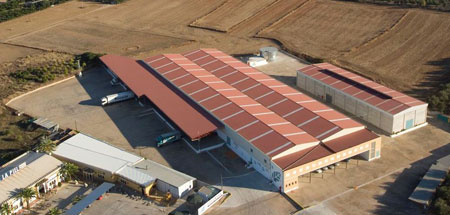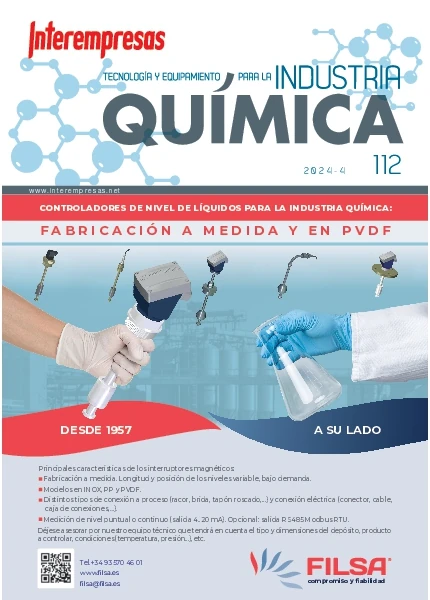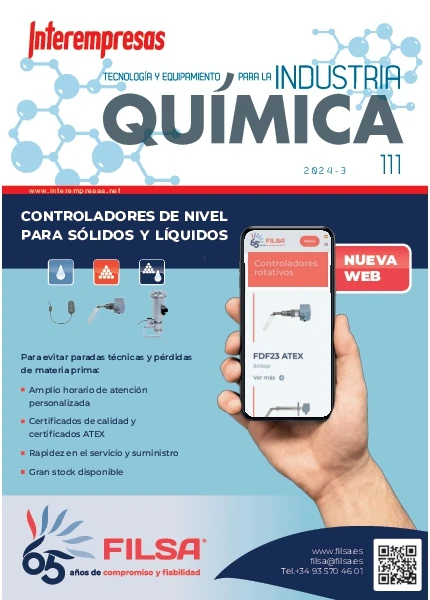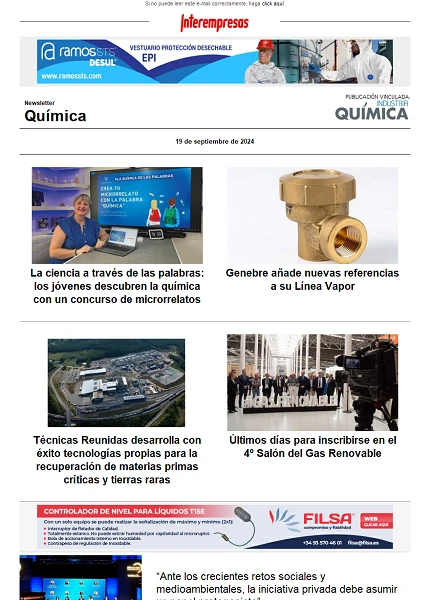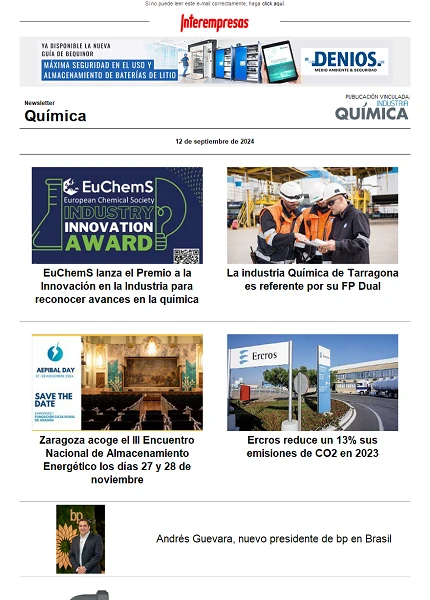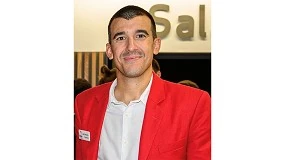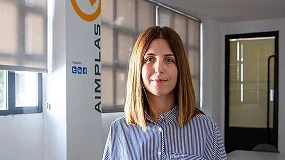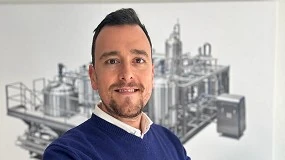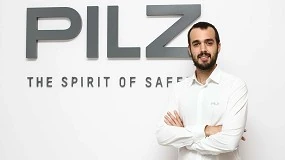Interview with José Luis Casado, President of Fitotrans
January 28, 2010
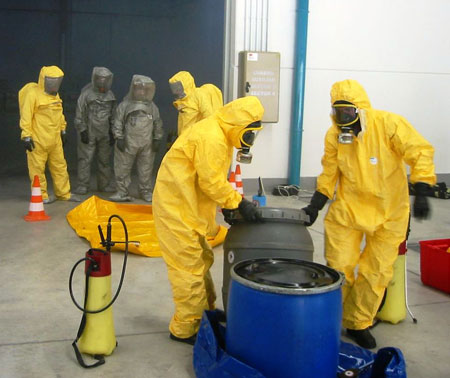
The specialty of Fitotrans are plant protection products. They were then opened to logistics chemistry for the automotive and construction. Now explore the consumable chemicals....
The legislation, in what refers to the storage service, is the same for a product agrochemical or plant health, which for a general or specific chemical. The standard that we must meet is the regulation of chemical products storage which is generic for all chemical risks with products.
Therefore, the storage of a plant protection product has the same characteristics and risks than the consumable chemicals as a fuel additive, a painting, a solvent, gases for repairs on board, cleaning products, such as bleach, additives for the health of the waters...
What is the fate of the consumables?
The supplies are to own the boats, the ships use. It is not a product that moves. It responds to the same needs that you may have a hotel or a factory. The destination is the use of the ship.
What we do is supply the ship, since the product is manufactured in origin so we moved to our facilities and hence, when we receive your order, we serve the needs of shipping lines with different vessels.
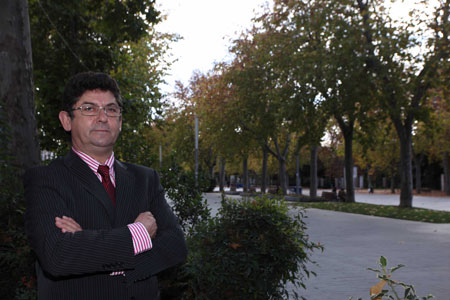
You say you have lot of work, and that continues to be a great what in these times. Then, by what this bet?
Because we believe that in the specialty is the projection and the future of companies. Doing something very, very, particular for the benefit of the safety of persons, property and the environment.
It is the way to succeed in times of crisis?
More so, since that is a guarantee of projection and future to not take the risk to disappear for a breach of law. At all times must be strict compliance with each and every one of the laws. But in times of crisis with greater reason, because the competition is more fierce, but it does not reach the levels of compliance with these regulations.
The activity of the new unit has as central facilities of Carrión of lawns, in Seville. Tell us about the route and the process that follows the transport of products that are going to cargo ships.
When ships are going to go or to stay in the Bay of Algeciras, they planned the needs at that particular time. It must be all very planned, cannot have any failure in the supply chain. Tell us the date and time of delivery. We work in coordination with the barges that supply to vessels which are not in spring, but which are moored in the Bay.The vessel that is moored in port, directly what we serve with our means.
How are prepared trucks to transport these consumable chemicals?
For a start, drivers have to be made and recycled on a regular basis in legislation on storage and, above all, the transport processes. They have a formal periodic recycling and one internal part of Fitotrans.
And vehicles?
They require concrete specifications in what refers to environmental protection, so that in the case of spills won't no liquid, no polluting products, to the environment. Imagine that there is a spill of a drum, that has bitten or, for any reason, lose liquid. This spill is controlled inside the vehicle so that no access to the outside.
How?
The spill is channeled through guides and what we recogeríamos in a warehouse sealed and ready for corrosive, toxic and other products. It is a deposit with a few special features. A plastic, for example, could not be material for a security deposit. In the vehicles we have one stainless steel would have no problems in the event of disposal of corrosive liquids, e.g., flammable liquids or toxic products.
Apart from the possibility of the spill, what other dangers are?
The contamination of a box in a vehicle that has had a spill. In that case should decontaminate the box. Any transport of dangerous goods can be transported products of consumption or food, of course.
What security measures are unavoidable in the vehicle and by the worker?
The vehicles have automatic fire and detection facilities, there are monitoring. Note that the storage of chemicals, and what I'm going to say is strong, we are terrorist target. They are stores that require a professionalism and awareness of all the teams for that security. Therefore, investments in media and facilities are very high, since the detection, monitoring, control and manual and automatic extinction systems.
But the most important thing is not that, but that the staff are very mentalizado and very trained in the management of the protocols and security measures.
What differentiates the transportation of supplies chemicals of plant protection products?
There is very little variation. Regardless of the particular product, the risks are exactly the same. If it is a corrosive, it's a corrosive. In the case of a toxic, same thing. What varies may be quantities. Within what is plant health or phytosanitary families are talking of highly concentrated products with very small doses of application.
In this case, additives and consumable products for boats have a higher volume and also a type of packaging over the plant.
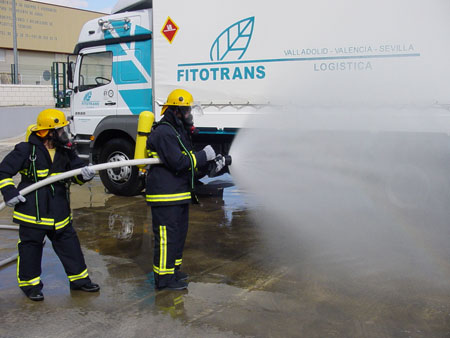
At what stage of the process does Fitotrans leave to intervene?
In which merchandise has reached its goal of destination: delivery in the ship, in Bay, either ship. Here ends our responsibility and we pass the product with their corresponding risks, and the information and documentation, to the authority of the ship, is the captain of the ship or the person in charge of the barge that will make the supply to the ship.
Are the workers very exposed to dangerous situations?
The exposure of the staff is very limited because the risks are known. In most cases, the packaging and the product come with their certificates of approval. Everything that is produced in the European Union has guarantees that complies with the rules.
We are talking about the driver and the handlers, no?
They have the same risk. The same incidence has a driver that loads, download the merchandise or her transported to a handler in a warehouse, which prepares the order and what conditions for his expedition.
Both drivers and the almaceneros receive training, in addition to the daily instructions and preventive courses, and have experience in contact with these risk situations twice a year we put into practice in the simulations of accidents or incidents.
I understand that Centre in Seville is working with the training of firefighters of Huévar. To what extent is that important?
It is therefore essential. When we do the drills of accident in the establishment, in the store, we invite you to the formation of the Park's fire team. They come to do technical provisioning and neutralization of risks extinction of fires, approach, practices. It's a series of protocols that are met in the training of fire and in the formation of our teams.
The important thing about all this is the involvement of all the forces of intervention, either firemen, civil protection... and who know the work center to operate it as if they had the incident in his own House. That you are aware of the constructive and institutional features of the Centre and, above all, fire protection equipment.
Are they frequent accidents on the road or in the store?
In Fitotrans we have accounted for over 30 years, zero accidents. From 1979 to today. And we will touch wood, because no one is free of risks.
And in the sector in general?
"What is missing is an inspector work." "And it is not a question of now"
Carlos de la Fuente, director general of Fitotrans
More rigour in the sector and in control of what happens in it. It is what institutions have asked Carlos de la Fuente, director general of Fitotrans. Recognizes and celebrates the storage and transport of chemicals management is tied to a "myriad of rules, laws and transposition of Community directives". But, also, regrets and criticizes that the control of the intrusion in the sector is insufficient: "what they lack is an inspector work." That is what is missing. But it is not a question of now. "To appear Community directives which are transposing to the Spanish legislation, the law is increasingly stricter and more rigorous with regard to the management to be done with this type of product." This, according to Carlos de la Fuente, not everyone meets them.
"There is much intrusion," says the director-general of Fitotrans. And it illustrates: "There are many companies transporting goods classified without the corresponding authorization, or the business drivers." The Inspector work looms much more with companies that it identifies your vehicles that are transporting goods classified. "And, however, not closed both in other companies that do not identify the merchandise bearing their vehicles and, however, they are transporting classified merchandise". As the source, inspections give even more clearly authorized companies for this activity than in others where it is not clear and precisely by this uncertainty - "they are completely opaque, facing the inspection there as companies that store chemicals, even if what they are doing" - were not inspected.
Target of theft
World and European major companies of the chemical industry not be walk about the Bush when it comes to demand strict safety conditions logistics companies: "No one is exempt from having an accident, but yes it can minimize, as far as possible, the consequences that could have a spill, fire, or any type of incident." "Are these large multinationals that require a series of parameters so that, if not reached a minimum level in them, not even sit with you to negotiate a specific project." Like the President of the company, the source does not it ignores the fact that vehicles transporting dangerous substances are, in some cases, coveted by terrorists. Thus, it is not only prevent accidents, but also "protect the product from possible theft". Amónicos nitrates would be one of these substances diana, among other highly flammable, very toxic or corrosive products - "or a mixture of them all" - because they are products "that can be used for the manufacture of explosives". In this context, Carlos de la Fuente speaks of the 'Bible' which is used for the transportation of classified goods: ADR, the European Agreement on transport of dangerous goods by road. He explains that he is a living document that is renewed every two years and where there are a number of chapters devoted to the control of the goods to such of attacks.
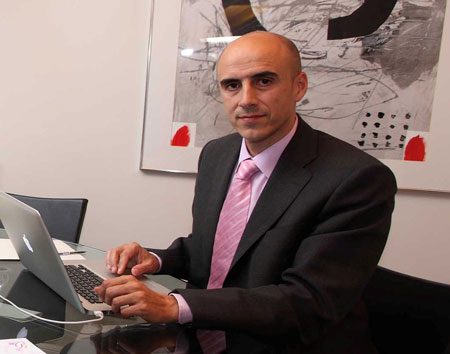
Carlos de la Fuente.
About Fitotrans
The company was founded in 1992 with the aim of the professionalization of the plant health and chemical logistics industry in Spain. In recent years, and from a policy of diversification, the firm has entered into new sectors, as logistics chemistry for the automotive and construction, which, in the words of the company "has allowed continue to increase its turnover full during the crisis".
In February of last year it began with a maritime Division to supply of consumable chemicals to cargo ships passing through the Strait of Gibraltar. They aim to do the same in the ports of Valencia, Barcelona and one of the North.
